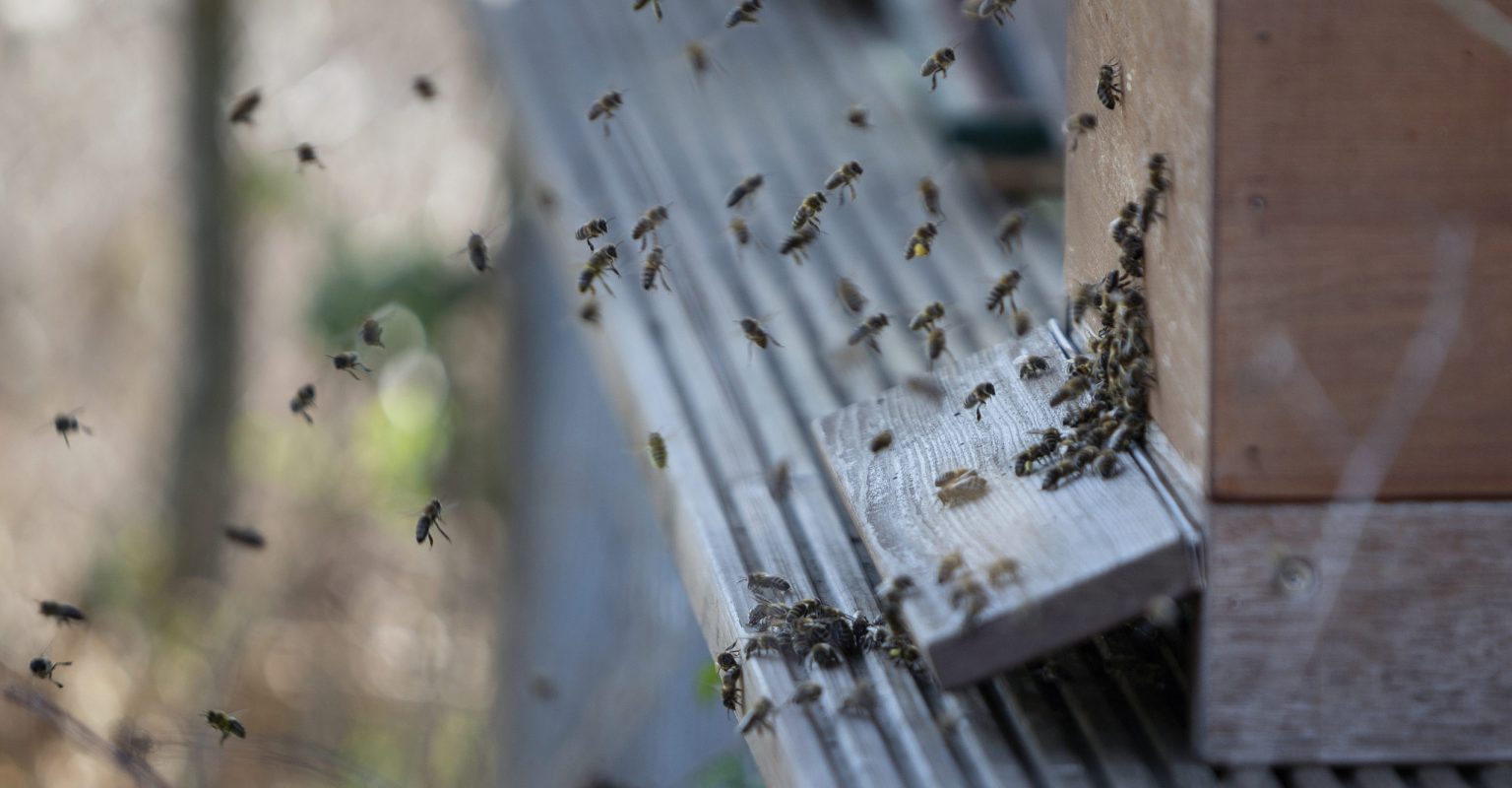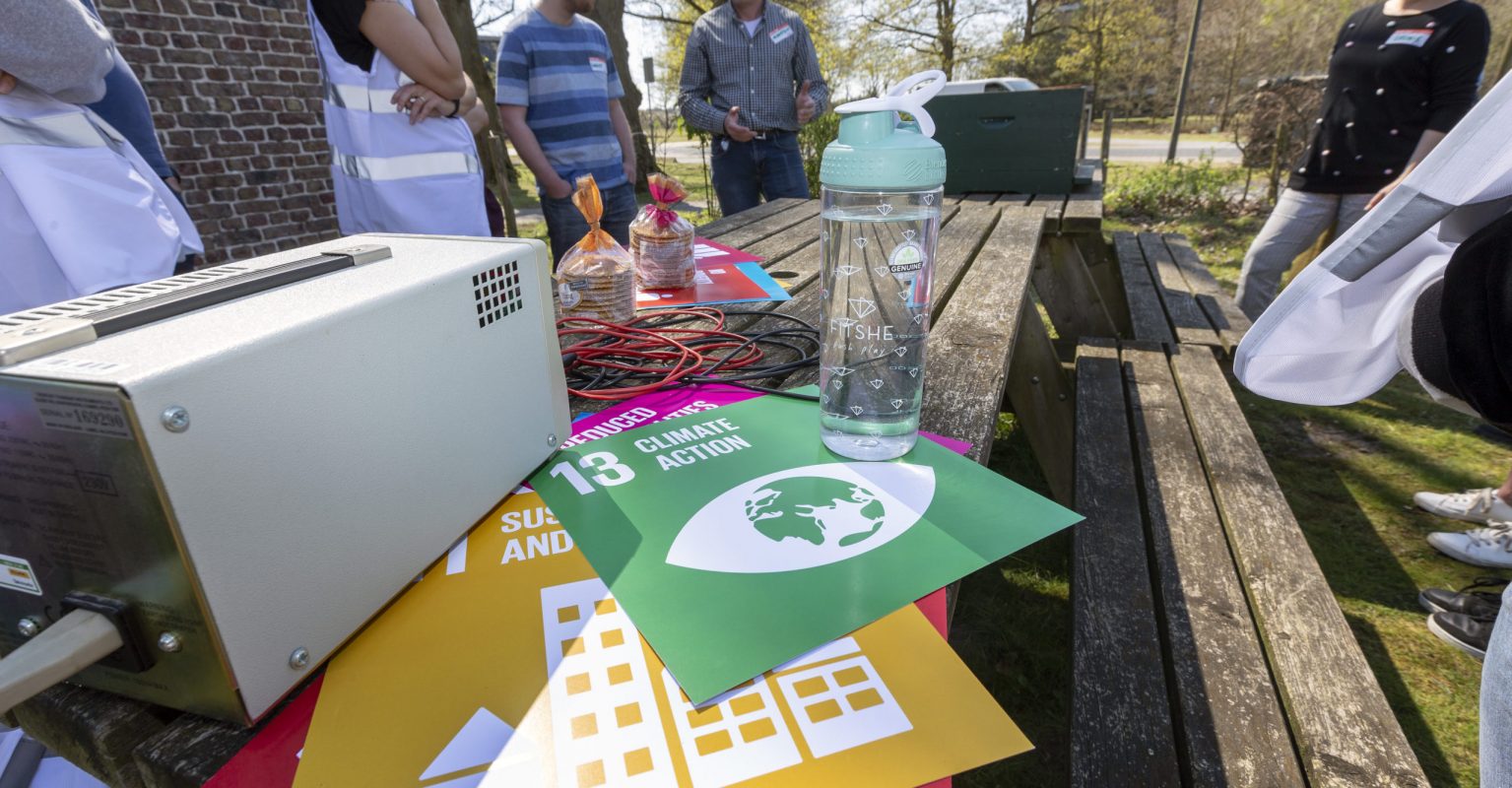
"Many people know that bees provide pollination and thus make the growth of much of our food possible. But not only our food, also that of many animals on this earth for example. We cannot do without the bees." - Maarten Arts, verification and validation expert @NXP and beekeeper
There is a lot of buzzing around the old farmhouse on the High Tech Campus. It's the bees in the Community Garden. This week is Earth Week: a period that NXP uses to do something good for the earth wherever they have branches. All employees are allowed to volunteer for eight hours during working hours. There are all kinds of projects to choose from, including helping to build a bee-friendly garden. This is made in the Community Garden. NXP employee and beekeeper Maarten Arts guides the volunteers and teaches them about beekeeping and the importance of bees for our ecosystem.
On Monday, a beautiful fence was already woven with willow branches. The volunteers made good progress and could already start sowing a special flower seed that attracts bees. "I have been greatly helped by the volunteers," says Maarten. The regular maintenance of the garden is done by Helicon, a school for green education adjacent to the HTC. "The Community Garden is important. Anyone can participate and it is in a highly visible spot on the campus. Making gardens bee-friendly is essential to our ecosystem. Many people know that bees are responsible for pollination and therefore enable the growth of much of our food. But not only our food, also that of many animals on this earth for example. We cannot do without the bees.
PREPARING THE HIVES
Apart from the fencing and preparing the garden for the bees, there is also work to be done to prepare the hives for occupation. Windows are to be fitted out for the brood and honey rooms. These windows help the bees to set up their nest more quickly. On top of a brood chamber comes a honey chamber. The latter only contains honey and makes harvesting easier.
In each hive there are between 20,000 and 50,000 bees. There is one queen in a hive. The workers decide who that will be. Queen becomes the bee that is fed royal jelly throughout the larval stage. You don't have to be afraid to walk past the Community Garden: a friendly breed that is not so assertive towards visitors has been chosen. These Carnica bees often produce up to 25 kilos of honey per hive, which you can buy at LOKL on the HTC. And so we have come full circle.
THE IMPORTANCE OF THE COMMUNITY GARDEN
The volunteer initiative appeals to Maarten: "You do something for your immediate environment and it is immediately visible." Marbritta van Boldrik, content & community manager at Samen voor Eindhoven (organisation for voluntary initiatives) immediately adds that the NXP employees have a perfect office in that respect: next to the Community Garden. They look out over the bees and can keep an eye on them. Maarten: "There is so much to be gained from working with bees, right here on the campus among the people. You give back to nature, improve the ecosystem, realise nature education for children and sell the locally made honey to the community.
Text: Bridget Alcione Spoor Photos: Bea Straver

